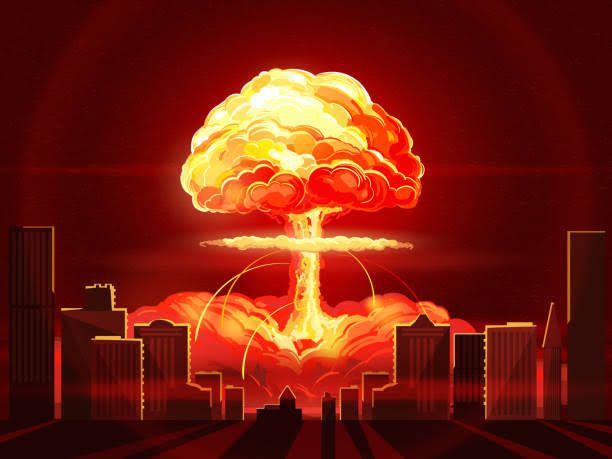Nuclear Deterrence for Estonia: A Necessity or a Far-fetched Notion?
In the shadow of an increasingly assertive Russia and the recent turmoil in Ukraine, the question of bolstering security measures has reached a fever pitch in the Baltic region. One such idea that has been floated, albeit not widely supported, is the acquisition of nuclear weaponry by Estonia as a

In the shadow of an increasingly assertive Russia and the recent turmoil in Ukraine, the question of bolstering security measures has reached a fever pitch in the Baltic region. One such idea that has been floated, albeit not widely supported, is the acquisition of nuclear weaponry by Estonia as a deterrent against potential aggressions by its eastern neighbor.
The notion of a nuclear-armed Estonia might bring a sense of security for some. The concept of nuclear deterrence has been a cornerstone of international security since the Cold War, with the destructive power of nuclear weapons perceived as an effective dissuasion against armed conflict.
In the case of Estonia, the argument is that a nuclear arsenal would provide an unequivocal deterrent against any potential Russian aggression. If Estonia were a nuclear-armed state, the cost of any conflict initiated by Russia would hypothetically rise to an unacceptable level. This is the essence of the nuclear deterrent strategy.
However, this is a contentious perspective and its feasibility, both practically and ethically, is debatable. There are several reasons why Estonia, despite facing real security concerns, should not and cannot realistically acquire nuclear weapons.
Firstly, acquiring nuclear weapons is a clear violation of international law. Estonia, like most countries, is a signatory to the Treaty on the Non-Proliferation of Nuclear Weapons (NPT), which forbids non-nuclear states from acquiring nuclear weaponry. Breaching this agreement would severely harm Estonia's international reputation, potentially resulting in sanctions and the degradation of vital diplomatic ties.
Secondly, the process of obtaining nuclear weapons, including the necessary infrastructure and technology, is enormously expensive and technologically complex. For a small nation like Estonia, the cost could be prohibitive. Additionally, the possession of nuclear weapons comes with significant safety and security challenges, including safeguarding against accidents and ensuring the weapons don't fall into the wrong hands.
Thirdly, the acquisition of nuclear arms could destabilize the region further. It could spur a regional arms race, prompting other countries to also seek nuclear capabilities, increasing the overall risk of nuclear conflict. This move could also make Estonia a target for other nuclear-armed states, thereby increasing, not reducing, its risk.
Lastly, nuclear deterrence does not address the myriad of hybrid threats that Estonia and other nations in the region face. These include cyber-attacks, disinformation campaigns, economic pressure, and energy politics, among others. Nuclear weapons are ineffective against these non-conventional threats.
In conclusion, while the idea of nuclear deterrence might seem appealing to some, the realities of international law, financial and technological constraints, regional stability, and the changing nature of threats make this an unfeasible option for Estonia. Instead, continued investment in conventional defense capabilities, cyber security, and diplomatic alliances, along with effective strategies to counter hybrid threats, remain Estonia's best tools for ensuring its national security.




